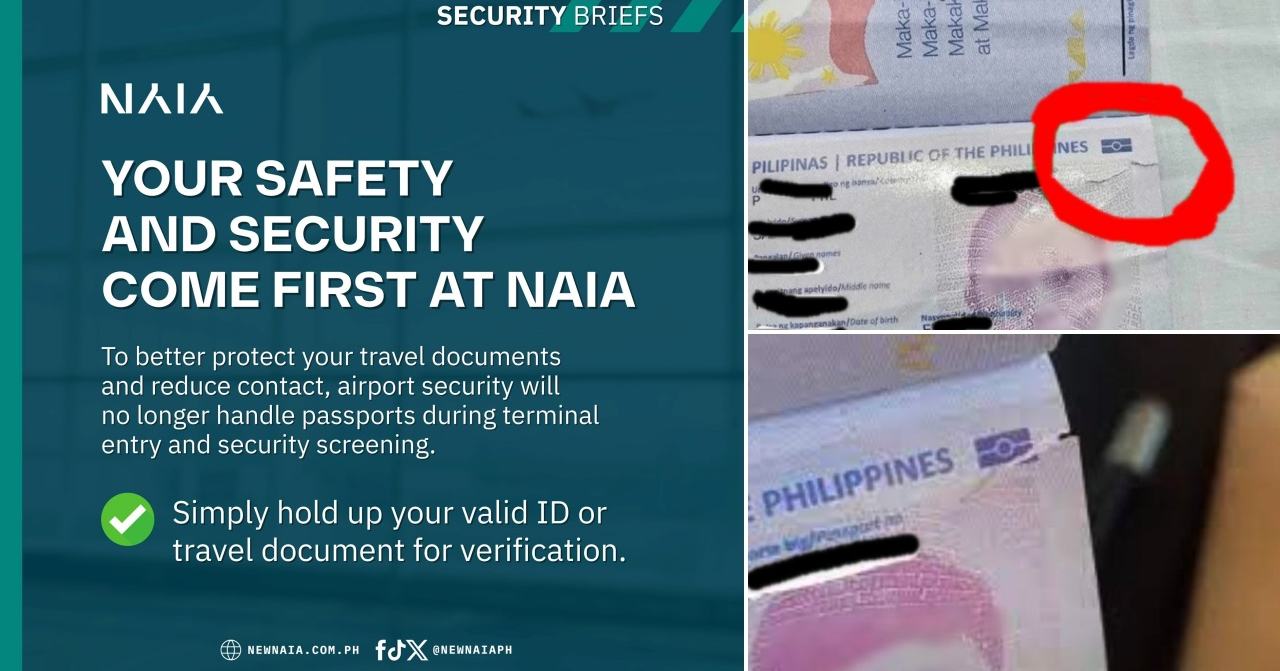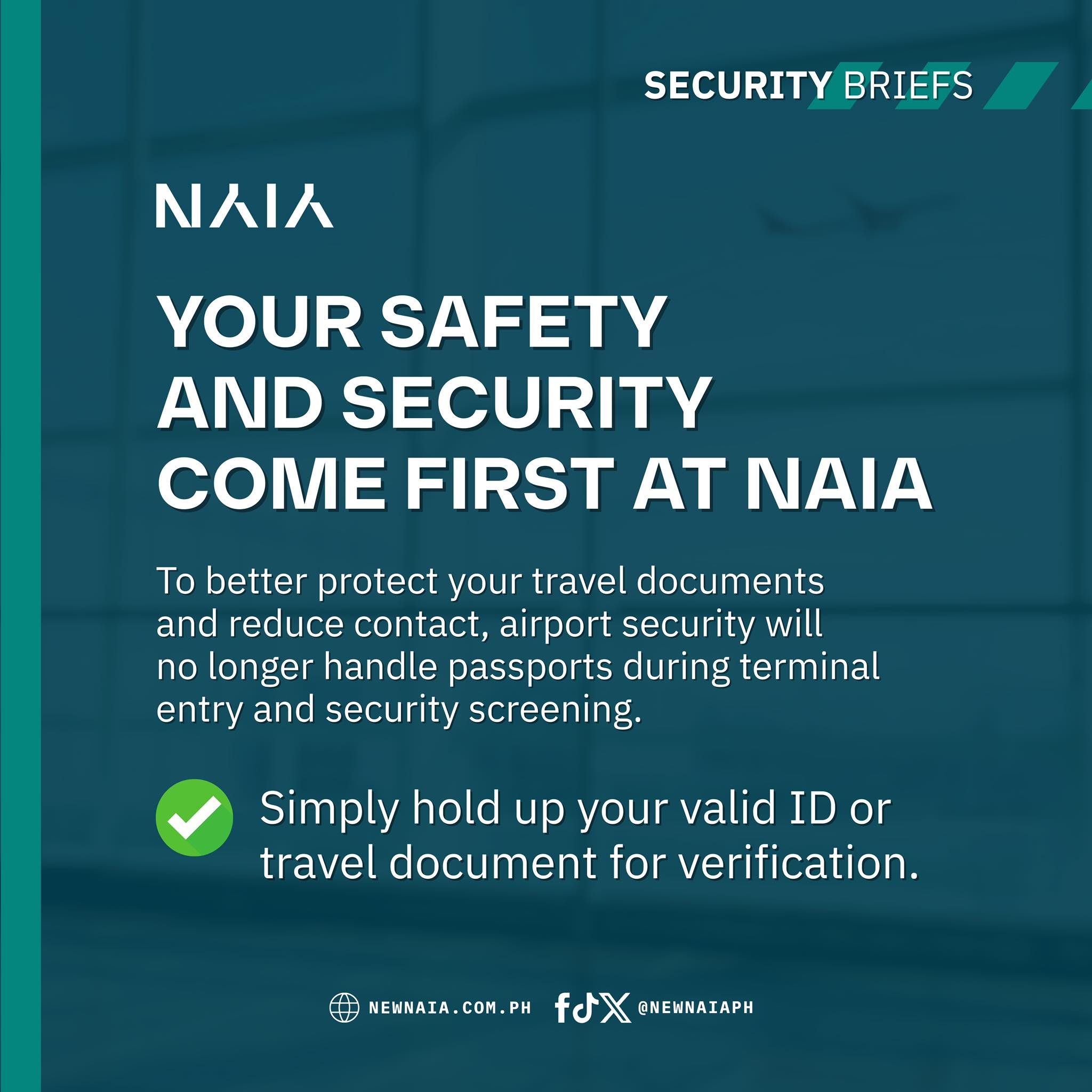Overseas Filipino Workers (OFWs) and international travelers flying through Ninoy Aquino International Airport (NAIA) should be aware of a newly implemented policy designed to protect their travel documents. Under this directive, security personnel at all NAIA terminals are no longer allowed to physically handle passengers’ passports during verification or other routine checks.
This significant change, introduced by the New NAIA Infra Corp. (NNIC), aims to address growing concerns over passport tampering and damages, including the controversial “punit passport” cases that left many Filipino travelers stranded.

Why Implement the No-Touch Policy?
The primary motivation behind this policy is to eliminate instances of mishandled or tampered passports at the airport. Recent incidents have highlighted how even minor damages such as tears, scratches, or loose pages can lead to passengers being denied boarding or entry at their destination.
A notable case that added urgency to this reform involved a 78-year-old Filipino passenger whose flight to Indonesia was canceled after a small tear was discovered on his passport. Immigration in Indonesia confirmed that such documents would be deemed invalid for entry, illustrating how crucial it is to maintain passport integrity. Unfortunately, passengers have complained that some of these damages occurred during airport processing, sparking frustration and distrust among travelers.
By requiring passengers to hold and present their passports themselves during inspections, this new policy significantly reduces the risk of unnecessary handling, ensuring the safety and integrity of these important travel documents.
How This Benefits OFWs and Travelers
For OFWs who depend on seamless travel to fulfill their work commitments abroad, this measure is a welcome development. Many OFWs spend months planning their journeys, and any disruption due to damaged travel documents can lead to costly delays or missed job opportunities. By prioritizing passport security, the NAIA policy offers additional peace of mind for Filipino workers and their families.
Additionally, the policy aligns with broader efforts by the Department of Transportation (DOTr) and other aviation authorities to improve passenger experiences. Investigations have been launched into cases of suspected passport mishandling, and airlines found guilty of tampering are expected to face penalties to deter similar actions in the future.

Proactive Passenger Measures
While this policy plays a key role in reducing risks, Filipino travelers are also reminded to do their part. Before heading to the airport, check your passport for any damage, such as tears, loose binding, or missing pages. If there are concerns, consult the nearest passport center or NAIA assistance desk for advice.
For OFWs, securing your passport in a protective cover can also help prevent premature wear and tear, especially given the frequent travel demands of working abroad. These small precautions can save time, money, and unnecessary stress when boarding international flights.
A Step Towards Safer, Smoother Travel
NAIA’s no-touch passport policy demonstrates a commitment to improving the airport experience while addressing issues that have caused significant inconvenience to passengers. By proactively implementing this rule, authorities aim to rebuild trust and ensure smoother travel for all Filipino travelers, especially the hardworking OFWs who rely on these processes to support their families.
With minimized risks and enhanced precautions, NAIA is taking a vital step toward becoming a more secure and efficient gateway for millions of Filipinos traveling the world.